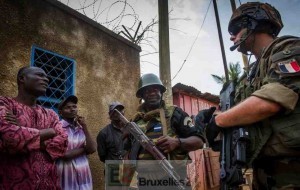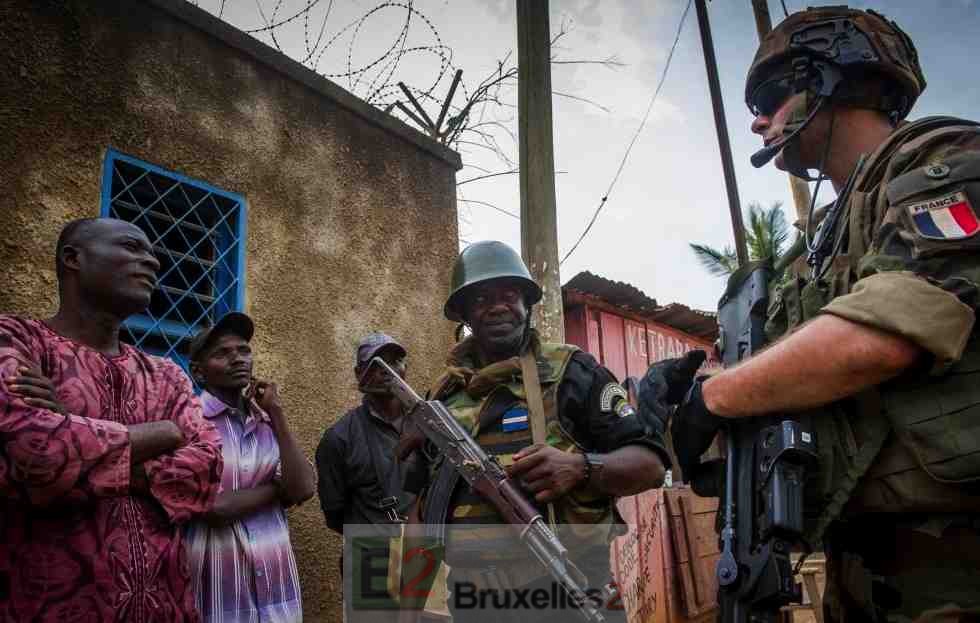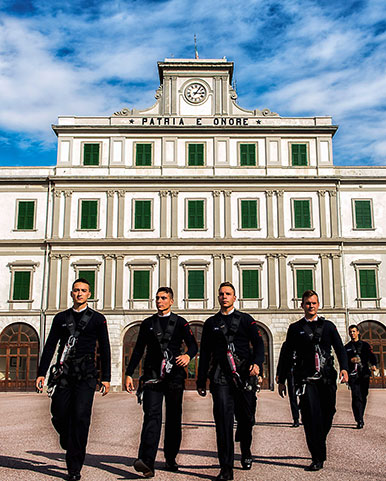EUFOR RCA: Laurent and Jean-Yves remind Europeans of their responsibilities

(BRUSSELS2) The French Ministers of Foreign Affairs and Defense have just published a press release that is unusual to say the least. A form of call to order to their European colleagues, on the slowness of setting up the European operation EUFOR RFA.
Mobilize!
“The European Union undertook, on February 10, 2014, to deploy a military operation in support of international efforts to stabilize the CAR. To date, despite the contributions announced by some European States, it is clear that the account is not there” explain Laurent Fabius and Jean-Yves Le Drian. And to launch an appeal in the form of a warning. “If an additional effort is not made very quickly, it will not be possible to launch, as planned, this essential operation next week. "Mobilize they launch: " The European Union must assume its responsibilities in terms of international security. France vigorously calls on its partners to provide themselves with the means to do so. »
Not yet all the means to launch the operation
Shortly before, a senior European diplomat had, to several journalists (including B2), confirmed the information given by B2 for the first time on Thursday, and the difficulty of generating forces. “For the moment, indeed, the operation commander felt that he did not yet have all the means to launch the operation”. And to add: It's not the human resources that are lacking — the operation commander has enough men to launch the operation, even if it means increasing the number of staff afterwards. What is missing are equipment and logistics. This is what we must continue to obtain from the Member States. »
But he also put the difficulty into perspective. “There is currently a postponement. It's not more than that. (...) These kinds of questions have arisen in the past. For example, for the operation in Chad (Editor's note in 2008, EUFOR Chad), we encountered the same problems. And what had made it possible to get out of business was that a Member State had provided the extra (Editor's note: France). This time the same Member State is already occupied in the Central African Republic and cannot provide the necessary manpower. »
Comments : this information coming from both Paris and Brussels confirms the accuracy of our paper 🙂 which was the first to reveal the problem and apparently inspired several other newspapers or press agencies. Read : EUFOR Rca mired in logistical issues. Beyond this little personal satisfaction (and to the small B2 team), a few remarks.
Comparison is not right...
• The planned schedule is "exploded". While until February 20 everything seemed possible, the ramp-up schedule was jammed and the launch decision delayed. Everything was ready. At least from a legal and political point of view. So the launch decision - that B2 was able to read - was written, distributed to the Member States and explicitly provided for the date of March 17 for the launch of the operation!
• If we can compare EUFOR Chad RCA 2008 and EUFOR RCA 2014 in the type of mission (interposition), the geographical area (Central African Republic) and their military nature, the comparison stops there. Between EUFOR Tchad RCA 2008 where nearly 4000 men had to be found to occupy a quasi-desert area, far from any urban infrastructure (part of the airport tarmac had to be built in Abéché), in two countries (Chad and the Central African Republic), with a distance between the various battalions deployed of several hundred km, over a period of one year and EUFOR RCA 2014, where it is a question of mobilizing 600 men around an airport and in its urban contiguity, in an area already "recognized" and "cleared" by other European forces (the French of Sangaris) and African (Misca), over six months! There is a distinct difference...
• Let's be concrete! What is missing today it's a few rotations of planes Europe-Bangui and “a bit of logistics. “A few truck drivers! as one officer told B2. So not much after all.
• To find oneself 6 years later in identical difficulties, reveals all the same all the European difficulties in assuming its political role and its international rank. The French ministers are right to point this out. How can we be credible today, if we are not able to keep our international promises? But the French would be wrong to push a cocorico. Europe's weakness is also France's weakness.
Who is responsible for this situation?
Many causes can be sought. And everyone will of course present their version. I will identify three or four causes.
1° France somewhat tried to go it alone, at first, calling on Europeans only to contribute to Sangaris, before transforming its message and Europeanizing the French mission. This caused some confusion initially.
2° The Europeans have not really shown a deliberate enthusiasm. The British faithful to themselves made the braggarts but very quickly deflated. The Germans played the minimum service. The Italians, Dutch, Belgians replied that they were occupied elsewhere. And many countries dithered, like the Poles - once yes, once no, then yes maybe and no maybe!
3° It cannot be said that the High Representative of the EU, Catherine Ashton, has put her weight in the balance, nor pushed the States into these entrenchments. A simple letter (kept very discreet until B2 reveals it) than telephone contacts or a public press release. The High Representative has in no way relied on public opinion and the media to "push the fire" (contrary to what happened in 2008!). So no warning, no information reached the press - officially or even unofficially - that there was a problem. The holding of yet another force generation conference was done as discreetly as possible.
4° Remoteness. The Central African Republic is far away. The stakes seem so difficult to grasp in the eyes of many Europeans. And the Ukrainian crisis, which intervened between them, further mobilized political forces and media attention. There is a disturbing zapping here from a strategic point of view. The European security policy should succeed in abstracting itself from certain topical contingencies in order to "force" the news if necessary. Especially since what is at stake is all the same an inextricable situation of violence within the population in a situation "close to genocide".
(Nicolas Gros-Verheyde)

